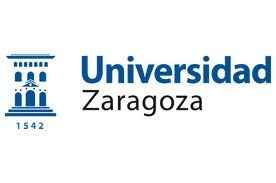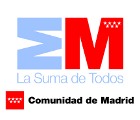II Gefenol Summer School on Statistical Physics of Complex and Small Systems
2012, Sep 03 -- Sep 14
Organizers:
F. Falo (BIFI- UZ)
JMR Parrondo (UCM)
J. Gómez - Gardenes (Bifi-UZ)
Statistical Physics born as an attempt to explain thermodynamic properties of systems from its atomic and molecular components has evolved into a solid body of knowledge that allows for the understanding macroscopic collective phenomena. One of the largest successes of Statistical Physics has been the development of paradigms, stylized simplified models that capture the essential ingredients, for a wide variety of phenomena. These paradigms have allowed not only the understanding of the systems by themselves but also that many apparently different behaviors are just different manifestations of the same collective phenomena. The tools developed by the Statistical Physics together with the Theory of Dynamical Systems are of key importance in the understanding of Complex Systems which are characterized by the by emergent and collective phenomena of many interacting units. In particular the understanding of small systems, in which fluctuations are typically large, benefits from Statistical Physics body of knowledge. At the same small systems fuel the development of new techniques and provides the basis to test predictions at a very deep level.
While the traditional basic body of knowledge of Statistical Physics is well described in textbooks and typically at an undergraduate or master level, the applications to Complex and Small Systems are well beyond the scope of those textbooks. The Summer School on these topics aims at bridging the gap between the master level and the necessities of PhD students working on these fields.
This school will be the sequel of the first one which took place in Palma de Mallorca in September 2011. Since the success of this first edition, we propose to continue the structure of the activities program.
The Summer School will take place along two weeks in which there will be a total of six courses (three courses each week). This edition we will cover the following subjects:
First Week:
- Stochastic Thermodynamics.
- Evolution and Statistical Mechanics.
- Statistical Physics of Networks and Proteins.
Second Week:
- Systems Biology.
- Neurobiology and Behavior.
- Experiments in Soft Matter.
List of speakers
- Massimiliano Esposito, Université Libre de Bruxelles, Belgium
- Paolo de los Rios, EPF de Laussane, Laussane, Switzerland.
- José A. Cuesta, Universidad Carlos III de Madrid, Madrid, Spain.
- Marta Ibañes, UB, Barcelona, Spain.
- Frencesc Sagues, Universitat de Barcelona, Barcelona, Spain.
- Gonzalo G. de Polavieja, Instituto Cajal (CSIC) Madrid, Spain.
Organization
The School is organized by the Topical Group on Statistical and Non Linear Physics (GEFENOL) of the Real Sociedad Española de Física.
GEFENOL's main objective is to promote the statistical and non-linear physics and any scientific and academic exchange among research groups working in these discipline.
This second edition is co-sponsored by the European Science Foundation through the PESC activity Exploring the Physics of Small Devices.
The scientific committee includes:
- Juan Manuel R. Parrondo, GISC, Universidad Complutense de Madrid.
- Pere Colet, IFISC (CSIC-UIB).
- Fernando Falo, BIFI, Universidad de Zaragoza.
- Juan Antonio White, Universidad de Salamanca.
- Miguel Ángel Rodríguez, IFCA (CSIC-U. Cantabria).
Participants
We aim at an attendance of about 25 PhD students from any country. Classes will be taught in English.
Admission and Grants
Since the limited number of attendance we ask the applicants to provide a brief statement of motivation, current status and a short list of academic and scientific merits (comments section of inscription).
We also have a certain number of grants available that cover the stay in Benasque. If you want to apply for a grant, please indicate explicitly that you wish to be supported in the comments section. Grants will be awarded considering the information provided in the comment section of the inscription.
Sponsors include
 |
 |
 |
 |
 |
 |
Further Information.